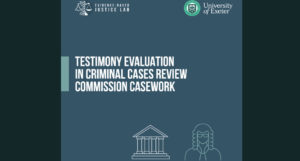Schools must address classroom bias against working-class pupils to level the education playing field

The study says greater linguistic flexibility, including more choice over the languages used, are needed to improve mental healthcare for children with EAL
Teachers need to do more to celebrate the achievements of the working classes and confront social class biases in the classroom, a leading social mobility expert has said.
Equity in Education – a new book by Lee Elliot Major, professor of social mobility at the University of Exeter, and Emily Briant, a teacher in the South West – calls for a new approach and language to replace a “deficit mindset” which treats pupils from under-resourced backgrounds as inferior, forcing them to fit in with the dominant middle-class culture of schools if they are to prosper in education.
Lessons should reflect the full cultural diversity of pupils, argue the authors, including working-class achievements in society – from music, film and football to literature and science. This might include discussing the work of Stormzy, Marcus Rashford or Tracey Emin, for example, or the accomplishments of figures such as Mary Anning or Michael Faraday who transformed our understanding of the world, or the social class divides explored by Dickens and other writers in their works of fiction.
The book argues middle-class advantages are baked into the education system, with classroom language and exam questions loaded with assumptions that disadvantage children who have not been brought up to navigate and negotiate the unwritten rules of school. Middle-class pupils are more likely to automatically speak the language of education and are prepared to advocate for themselves in the classroom.
The authors call for pupils to be referred to as ‘under-resourced’ rather than ‘disadvantaged’, as the disadvantaged label can lead to unconscious biases and lower expectations for these children. Studies show that teachers can act differently towards children from working-class backgrounds, exuding less warmth, giving less eye contact and providing lower-quality feedback on what they need to do next to progress in their learning.
The book, published by John Catt Educational, has been called ‘groundbreaking’ by one of the world’s most influential educationalists, Dylan Wiliam.
Professor Elliot Major said: “Current government approaches to education aren’t working. Children from low-income homes are still falling behind their more privileged peers in school.
“Efforts have focused on turning children from working-class backgrounds into middle-class clones armed with the traits needed to prosper in a middle-class system, rather than asking whether the system itself might be changed to make it welcoming to those from all backgrounds. We need a rethink; we need to find out what every child can offer, what we need to change, and how we can work together.”
Ms Briant said: ‘Equity is about providing additional support to pupils who need it most to prosper at school, while at the same time genuinely believing that all pupils can flourish in the classroom. Our book provides practical advice for teachers and school leaders, based on research and expert practitioner advice.’
Practical recommendations for teachers include:
- Organise a session among staff to reflect on the subconscious biases that may be creating barriers to learning for some pupils
- Use tests to provide objective assessments of where children are in their learning, and compare these with teacher judgements to identify potential biases
- Develop a school-wide policy of contacting all parents with authentic positive news about their children, valuing talents that are not always academic
- Consider a deep listening campaign to understand the assets of your local community and the parents you serve
- Consider ‘poverty proofing’ the school day. This might involve supporting families to access affordable healthy food and paying for their children’s uniforms and school trips, as well as after-school clubs.



